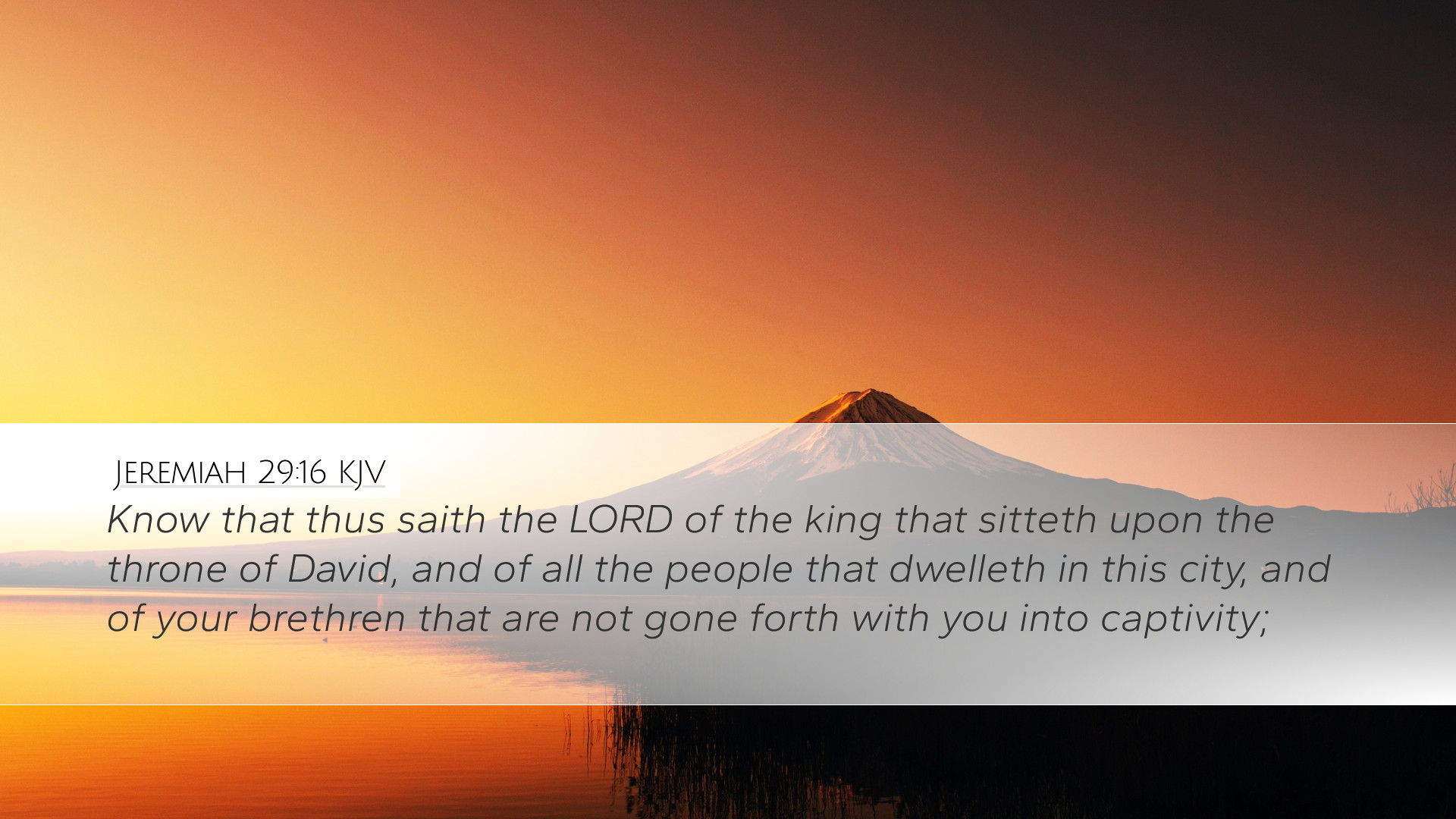Commentary on Jeremiah 29:16
Verse Reference: Jeremiah 29:16 - "For thus saith the Lord of hosts, the God of Israel; I have heard that which the prophets that are in Babylon prophesy concerning you, saying, Thou shalt not see the sword, neither shall ye have famine; but I will give you assured peace in this place."
Contextual Background
This passage comes amidst a letter written by the prophet Jeremiah to the exiles in Babylon. The context of Jeremiah's message is critical. The Israelites, having been exiled due to their disobedience to God, were receiving false hope from prophets who claimed that they would return shortly to Jerusalem without experiencing the consequences of their sin. Jeremiah’s voice operates as a corrective, bringing God’s true intentions to light.
Exegesis of Jeremiah 29:16
Understanding the Audience: The passage addresses the Jewish exiles who were feeling despondent, displaced, and misled by prophetic voices. It reflects God’s awareness of their plight and His desire to provide true guidance and reassurance amidst their trials.
Misperception of Peace: The phrase "Thou shalt not see the sword, neither shall ye have famine" points to the false assurances given by the lying prophets. They spoke peace and safety without acknowledging the discipline of God upon His people for their immorality. John Gill remarks that false prophets often undermine genuine repentance by offering a message devoid of true accountability.
Theological Insights
- Divine Sovereignty: The assertion of "For thus saith the Lord of hosts" emphasizes God’s ultimate authority and power over every situation, including exile. Matthew Henry illustrates that even in judgment, God provides hope.
- God’s Listening Ear: “I have heard that which the prophets” signifies that God is not distant from human affairs. Albert Barnes highlights that God’s providence is always at work, hearing all counsels, both wicked and righteous, and that He responds according to His perfect will.
- Assured Peace: The promise of "assured peace in this place" indicates God's intention to provide a sense of security to His people even in a foreign land. Adam Clarke notes that this peace is not merely the absence of conflict but a deep-seated assurance in God’s provision.
Practical Application for Contemporary Believers
This verse carries timeless implications for modern Christians:
- Discernment: It encourages believers to discern between true and false teachings. The assurance of peace must be rooted in accurate biblical doctrine rather than mere optimism or baseless claims.
- Sovereignty in Struggles: A call to trust in God’s sovereignty during challenging times. Just as the exiles were called to live out their faith in Babylon, believers today are urged to seek God’s peace amidst their own personal and communal struggles.
- Restoration and Hope: God’s message through Jeremiah reminds all that even in discipline, there remains a path toward restoration. Believers should cling to the assured peace promised by God that transcends worldly circumstances.
Conclusion
Jeremiah 29:16 serves as a critical reminder of God’s persistent desire to cultivate a relationship with His people, even when they face judgment. The insights gathered from public domain commentaries reveal a multifaceted understanding of divine guidance, hope amidst despair, and the call to respond faithfully to God’s voice. As pastors, students, theologians, and scholars delve deeper into this scripture, they find rich layers of meaning significant for the life of faith today.


